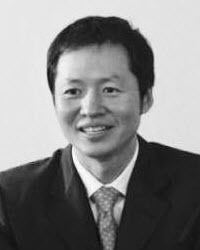Management in Korea is a regular column written by the members of Egon Zehnder Seoul, touching on various aspects of Korean enterprises and business leaders and offering management tips. -- Ed.
In a time of continuous disruption and successive waves of new business models, it not uncommon for senior executives to discover that leadership approaches that worked in the past are no longer as effective as they once were. But when a Korean CEO or other top leader needs to adopt a different mindset or develop a new set of interpersonal skills to match the changing environment, where can he or she turn for help? After all, few senior executives here have colleagues who will give them candid, unvarnished feedback, and there is a widespread expectation that executives project full confidence in their actions.
Despite these challenges, boards and CEOs in Korea are slowly becoming more receptive to using executive coaches to provide a confidential environment in which an executive can grapple with leadership issues under the watch of an experienced eye. Good coaching can accelerate a new CEO’s adjustment to the demands of global leadership, give a general manager with a technical background the tools for leading non-technical teams, and keep the personal growth of fast-rising executives on pace with their expanding responsibilities. Executive coaches can achieve these results because they place their engagements in larger context of the organization, its business and its strategy. Although the executive often benefits in ways that extend beyond the workplace, the coaching always takes place with a business objective in mind.
 |
Eugene Kim |
 |
Kim Ah-jeong |
But while the executive coach understands the business context in the same way that a traditional consultant might, there are ways in which coaching is the mirror image of consulting. Much of the consultant’s remit is to define the problem and offer a solution. Inexperienced executive coaches often follow the consulting model, thinking that here, too, their role is to be the “expert” and provide answers. But the coach’s job is really to ask the right questions, guiding the executive on a path of self-discovery and development. The first step in that journey occurs as the executive defines the type of leader he or she wants to become and identifies what may be holding him or her back from reaching that goal. This is rarely an easy task, making it all the more ironic that some in Korea still dismiss coaching as company-paid leisure.
The executive may be the one who does the “heavy lifting,” but this is not to suggest that the executive coach doesn’t add real value; a good coach possesses deep insight into not only what real, lasting success looks like in the C-Suite, but the sorts of behaviors that contribute to or undermine that success. The coach is also well-versed in a wide variety of developmental techniques and knows when and how to use them, helping the executive look beneath the surface to understand how his or her behavior contributes to a web of interpersonal dynamics. This deeper discovery that moves from the “what” to the “why” is also often the most difficult part of the process. It requires the coach to both support the executive and challenge him or her in building self-awareness and making the needed behavioral changes.
Every executive’s goals and path will be unique, and the hurdles to be overcome along the way are not always known in advance. Because of this, executive coaching can seem meandering and directionless to the outsider. But these appearances are deceptive: A good coach will construct a careful, individualized plan that includes “assignments” for the executive to work on in the real world and regular opportunities for checking in, evaluating progress together and making whatever mid-course corrections might be necessary. After an agreed-upon period -- usually between six and 12 months -- the coach and the executive assess the progress that has been made and what, if any additional work is needed.
 |
(Herald DB) |
The results of executive coaching often defy measurement by the standardized, quantitative metrics that typically resonate with Korean decision makers. But the benefits can be quite tangible nonetheless -- particularly when compared with the high cost of having leaders who, perhaps despite their best efforts, find themselves out of sync with the needs of their organizations and the demands of their markets. In today’s highly competitive environment, Korean organizations cannot afford to have their top executives operating at anything less than peak performance. Increasingly, those organizations are discovering that executive coaching can play an important role in reaching that state.
By Eugene Kim and Kim Ah-jeong
Eugene Kim is the managing partner of advisory firm Egon Zehnder Seoul. He can be reached at
Eugene.Kim@egonzehnder.com. Kim Ah-jeong is the head of research at Egon Zehnder Seoul. She can be reached at
AJ.Kim@egonzehnder.com. -- Ed.










